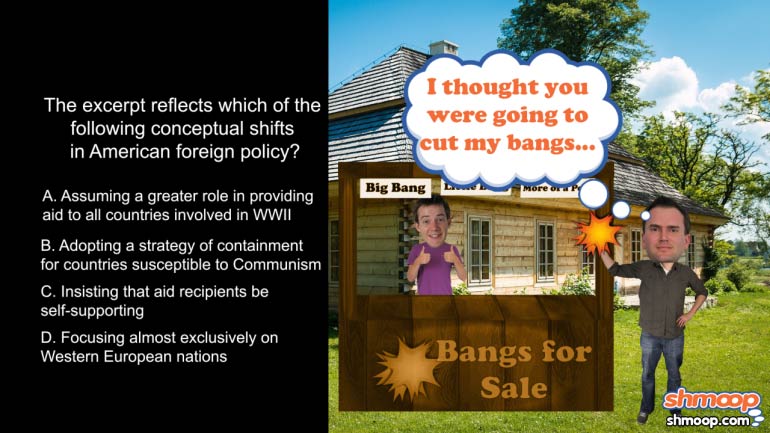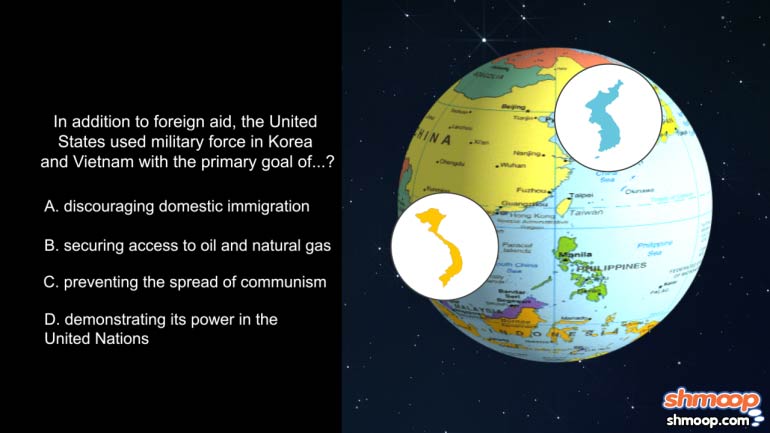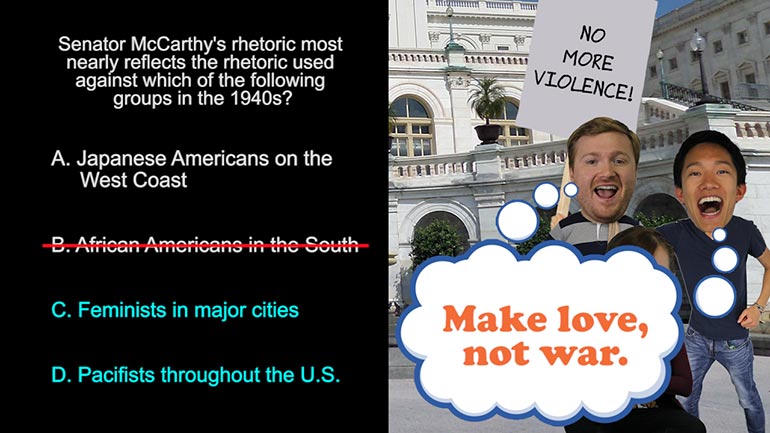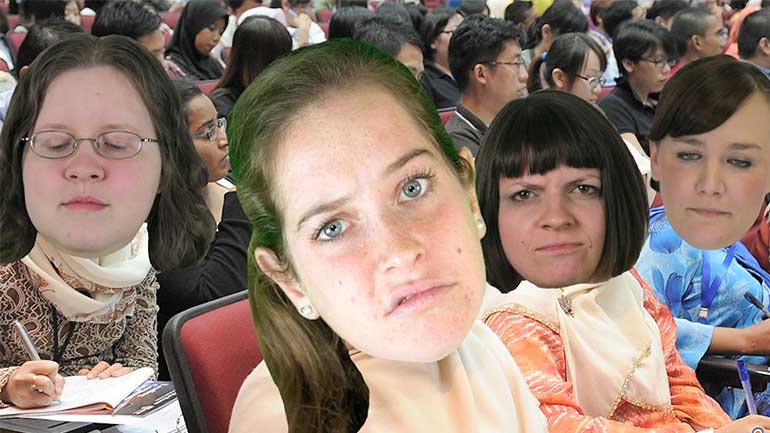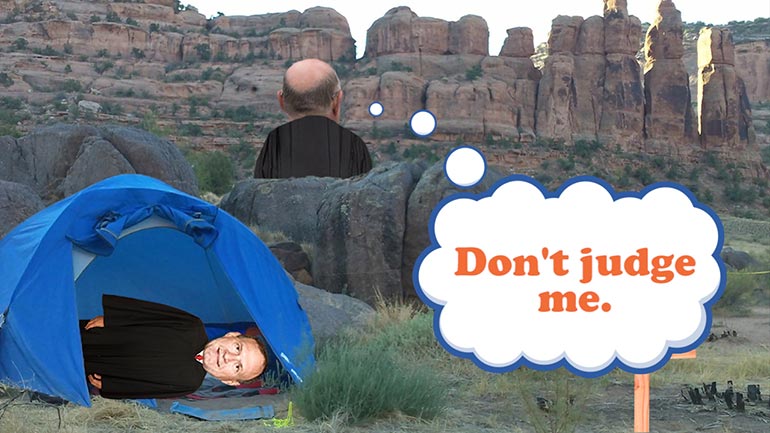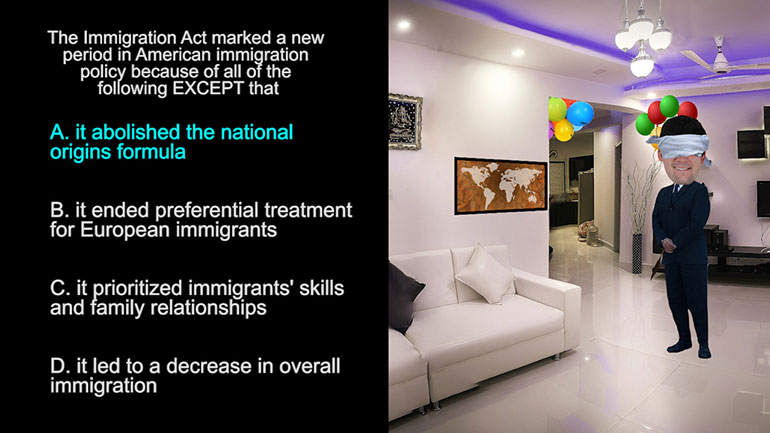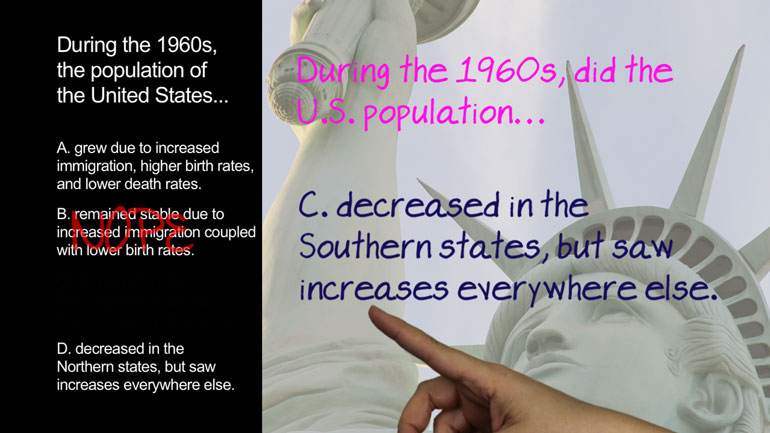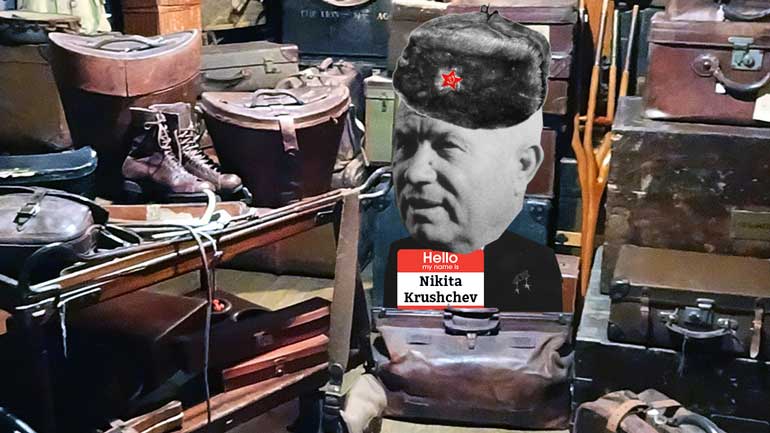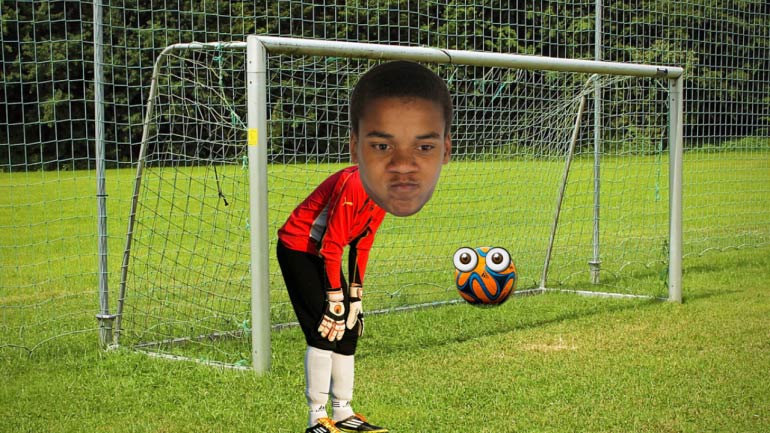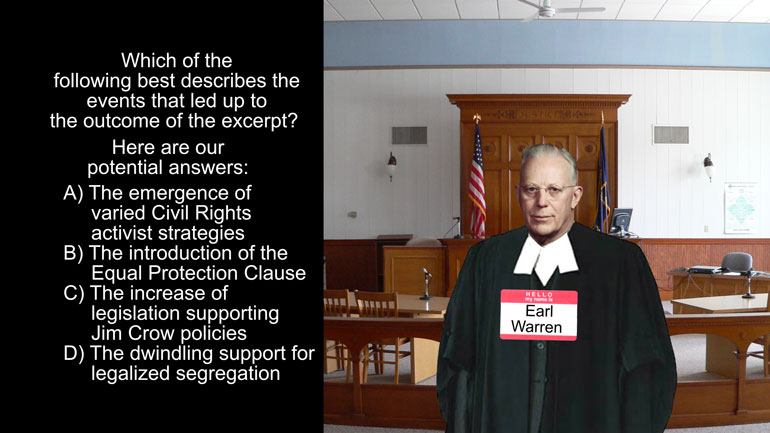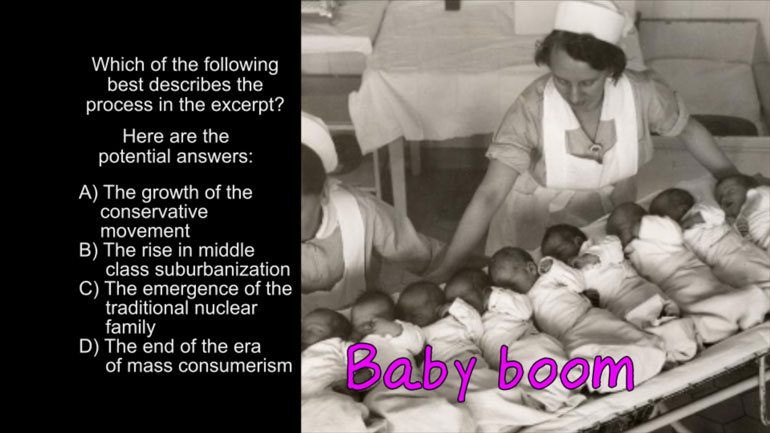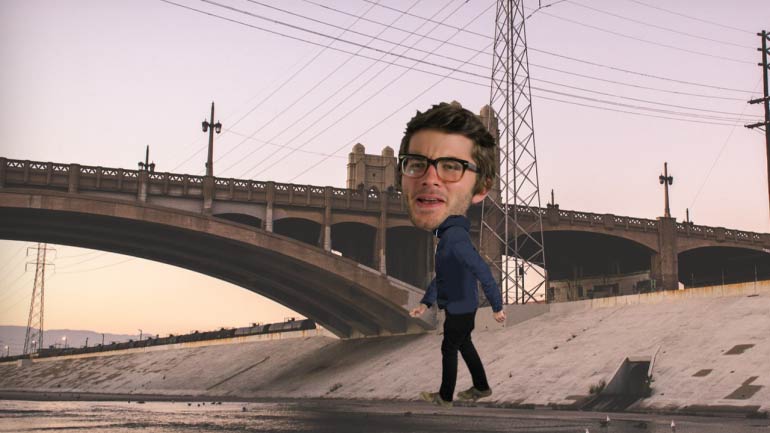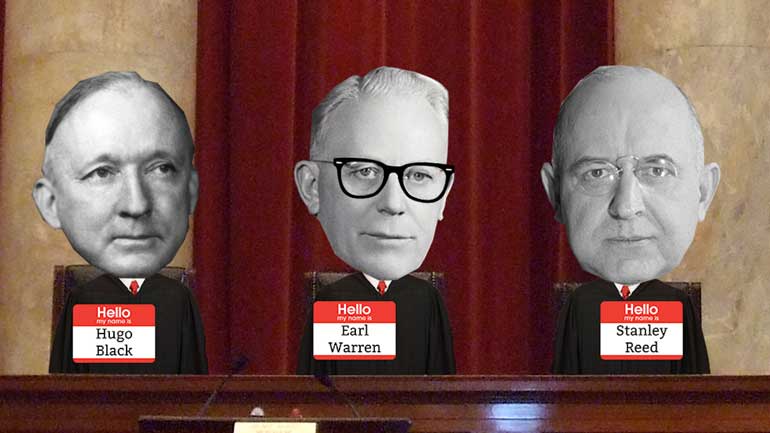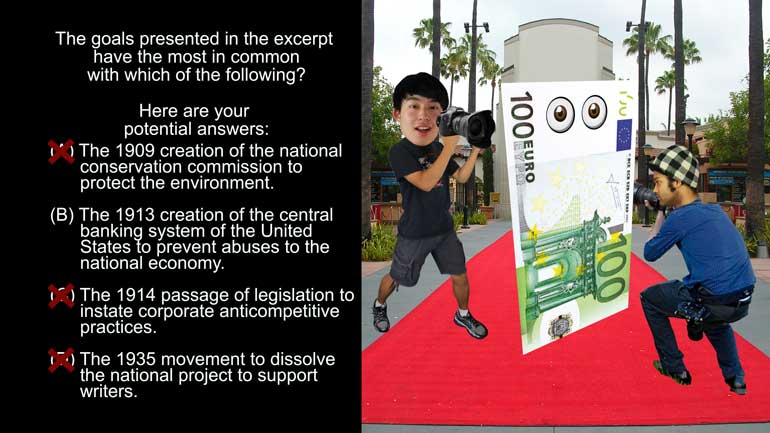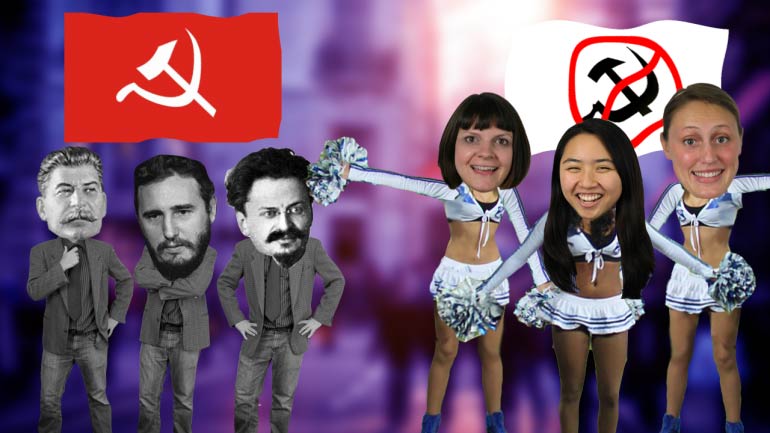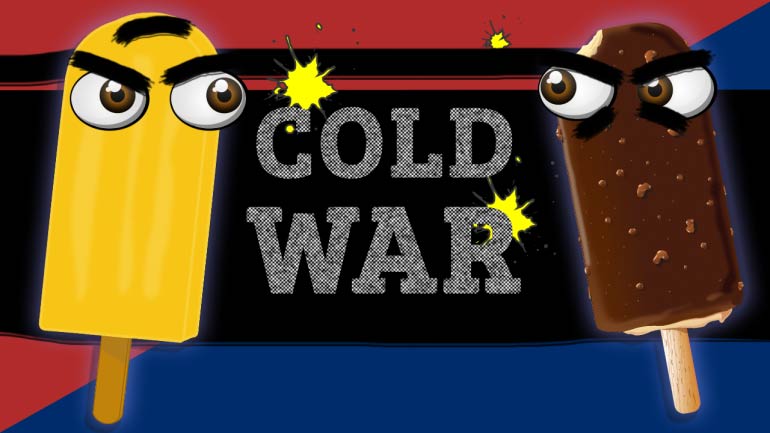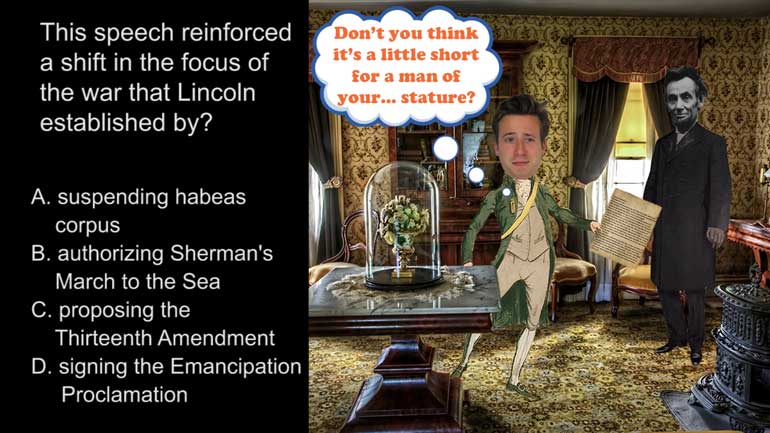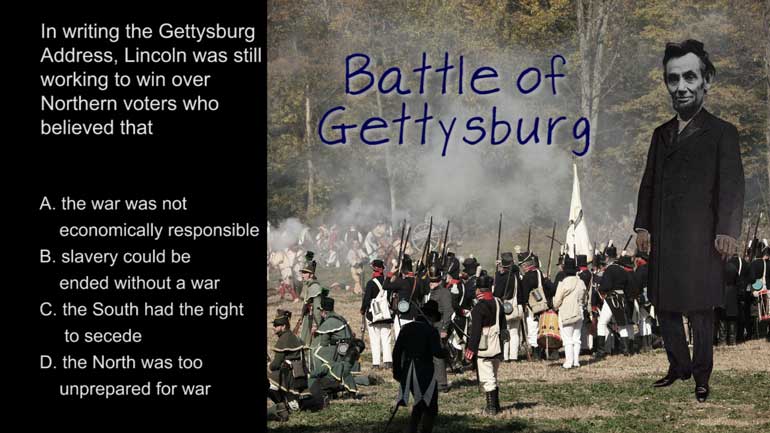ShmoopTube
Where Monty Python meets your 10th grade teacher.
Search Thousands of Shmoop Videos
Period 8: 1945-1980 Videos 19 videos
AP U.S. History: Urban Society in 19th Century Drill 1, Problem 1. In this AP U.S. History question figure out how the cutoff of oil in Americ...
AP U.S. History 1.4 Period 8: 1945-1980. In the decade leading up to the oil crisis, America's energy needs were...what?
In this AP U.S. History question read the excerpt and determine how it reflects on conceptual shifts in American Foreign Policy. AP U.S. His...
AP U.S. History 1.2 Period 8: 1945-1980 221 Views
Share It!
Description:
AP U.S. History: Industrial American in 19th Century Drill 1, Problem 5. In addition to foreign aid, the United States used military force in Korea and Vietnam with the primary goal of...what?
Transcript
- 00:00
[ musical flourish ]
- 00:04
And here's your Shmoop du jour, brought to you by the domino theory,
- 00:08
the philosophical study of pizza.
- 00:10
All right, here's the excerpt.
- 00:11
[ mumbles ]
Full Transcript
- 00:14
All right, and the question:
- 00:15
In addition to foreign aid, the United States used military force
- 00:18
in Korea and Vietnam with a primary goal of... what?
- 00:23
And here are the potential answers.
- 00:25
[ mumbles ]
- 00:29
All right. Well, what exactly were we up to in Korea and Vietnam?
- 00:32
Well, they're pretty small countries, sure, but we sent
- 00:34
a full military force to fight in their internal conflicts.
- 00:38
So there must have been something that lured us across the Pacific Ocean.
- 00:42
So let's see which answer can best describe why we showed up to the dance.
- 00:46
Did we use military force in Korea and Vietnam with the goal of A -
- 00:50
discouraging domestic immigration?
- 00:53
Huh? Well, actually, these military operations didn't really have
- 00:56
anything to do with preventing the in-flow or out-flow of people and goods.
- 01:00
So that knocks out A and B.
- 01:02
Was a primary goal of intervening in Korea and Vietnam to
- 01:06
D - demonstrate U.S. power to the United Nations?
- 01:09
Well, sending a military force into a country certainly makes a strong statement,
- 01:13
but the ongoing conflicts in Korea and Vietnam received mixed support in the U.N.
- 01:17
For them it was might makes kind of right. So it ain't D.
- 01:22
Which means the U.S. used military force in Korea and Vietnam in order to C -
- 01:26
prevent the spread of communism.
- 01:28
During the Cold War, the U.S. was very concerned about domino theory,
- 01:31
the idea that if one country fell to communism, the ideology
- 01:34
would spread throughout the region and possibly the world.
- 01:37
So when communists made gains in Korea and Vietnam,
- 01:40
the U.S. decided to intervene, hoping to stem the bleeding, so to speak.
- 01:44
So C is the correct answer.
- 01:45
And for the U.S. officials worried about the communist threat,
- 01:48
well, the only thing to fear was the fear of it spreading itself.
- 01:52
[ classical music ]
Related Videos
AP U.S. History Diagnostic 24. How did the United States choose containment over the National Security Council Report in Latin America?
AP U.S. History Exam 2.45. The journey shown on the map was an example of...what?
AP U.S. History Exam 2.26. This speech reinforced a shift in the focus of the war that Lincoln established by...what?
What did the Spanish messengers bring with them to North America? Hint: you probably wouldn't be thrilled to get this for your next birthday.
AP U.S. History Exam 2.25. In writing the Gettysburg Address, Lincoln was still working to win over Northern voters who believed that...what?


